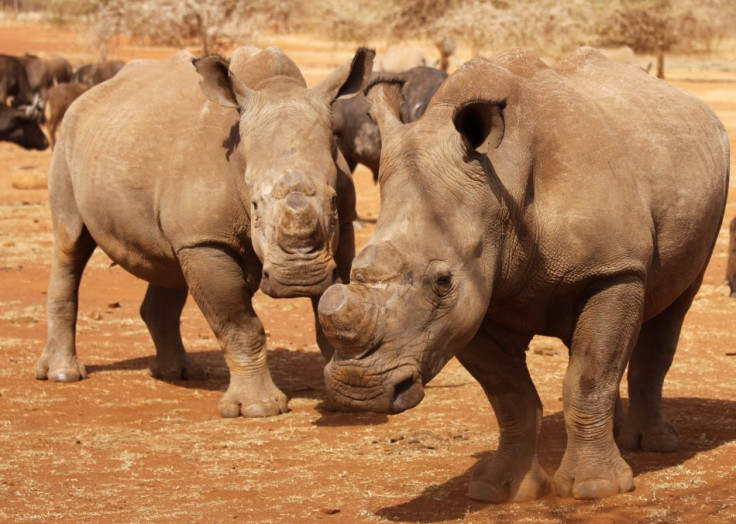British Zoos on Alert as Rhino Poaching Hits the UK

Zoos in Britain have been warned their rhinos may be targeted by poachers because of the increasing value of ivory in the Asian medicine market.
It is understood that rhino horn has been used in traditional Chinese medicine to treat fevers whereas, in Vietnam it is commonly prescribed by some medical practitioners as a "detoxicant" and is taken as an antidote to overindulgence.
It is rumoured that some Asian cultures believe rhino horn can even cure cancer.
Consequently, the horn is now worth more than $40,000 (£25,500) per kilogram.
Traffickers and gangs have been breaking into museums and auction rooms in Britain and Europe to steal rhino heads and horns.
British authorities fear the next target will be live rhinos housed in zoos.
The National Wildlife Crime Unit has alerted all 15 British zoos and wildlife and safari parks which hold rhinos and encouraged them to tighten security and report any suspicious activity to police immediately.
Eighty-five rhinos are housed across the 15 zoos located in Britain.
"We have warned British zoos to be on their guard against the possibility of being targeted by criminals seeking rhino horn," said head of the unit, Detective Inspector Brian Stuart.
According to a report in The Independent, concern is growing that criminals will try to break into British zoos at night and kill or tranquilise rhinos and remove their horns.
Authorities first became aware of the threat to zoos after a man was caught trying to smuggle a rhino horn out of Britain into Asia, the report said.
In July 2011, poachers broke into Ipswich Museum and cut off the horn of an Indian rhino named Rosie, who had been there since 1907.
The mounted head of a black rhino was stolen from Sworders Fine Art Auctioneers in Essex in February 2011 and a similar head was taken from the Educational Museum in Surrey in May 2011.
A single big horn that weighs more than 5kg could fetch more than $200,000 (£127,600), making the potential profits tempting.
The announcement follows recent news of South Africa's rhino poaching crisis, with the number of rhino deaths soaring to record numbers in the past year.
In 2011, 448 rhinoceros were killed in poaching-related activity in South Africa, according to official government statistics.
The annual total includes 19 endangered black rhinos, of which fewer than 5,000 remain in the wild.
In 2010, 333 South African rhinos were killed by poachers, nearly three times the number killed in 2009.
More than half of South Africa's rhino deaths occurred in Kruger National Park, the country's premier tourist destination, which is renowned for its variety of African wildlife.
The park lost a total of 252 rhinos to poaching in 2011, and authorities from South Africa National Parks said it was one of their "worst years" for rhino poaching across the country.
Additionally, a record number of large ivory seizures was recorded globally in 2011.
The news also coincides with a new report released by wildlife monitoring organisation TRAFFIC that illegal elephant ivory trade is booming in Egypt following the Arab Spring.
The organisation believes the illegal trade is flourishing due to a lack of law enforcement, combined with the entrance into the market of a major new consumer - the Chinese buyer.
The report, Illegal Ivory Sales in Egypt, states "Egypt remains one of Africa's largest markets for illegal ivory items," adding "No ivory items - old or new - can be sold legally in Egypt without a special permit, and none has ever been issued."
© Copyright IBTimes 2024. All rights reserved.





